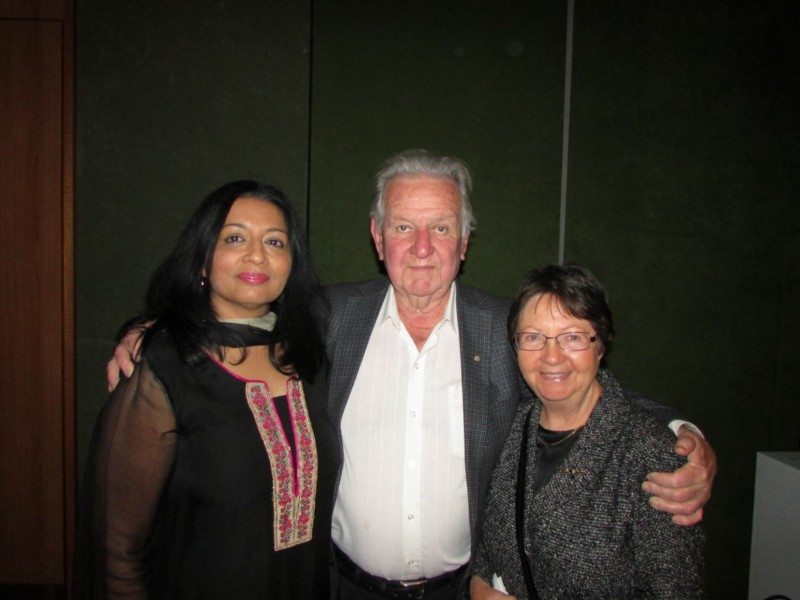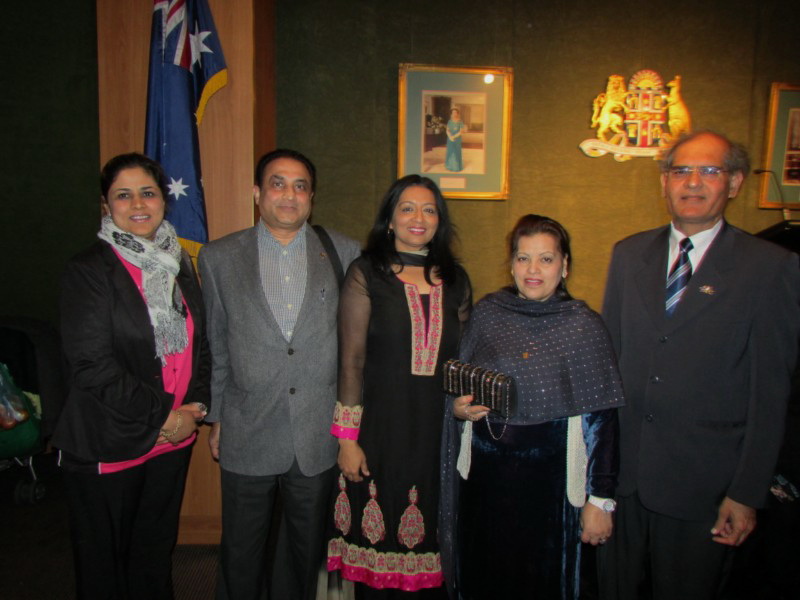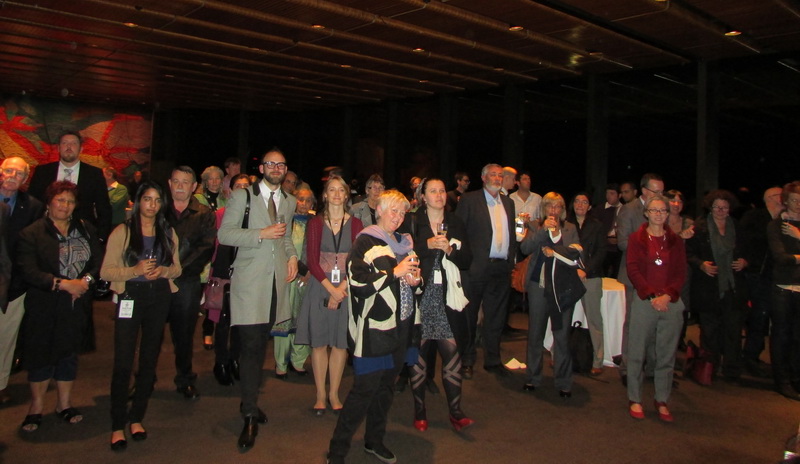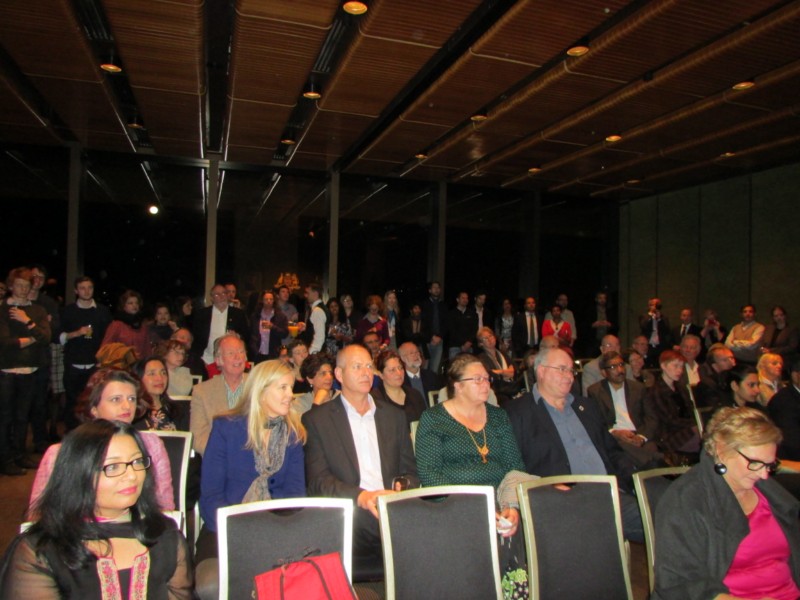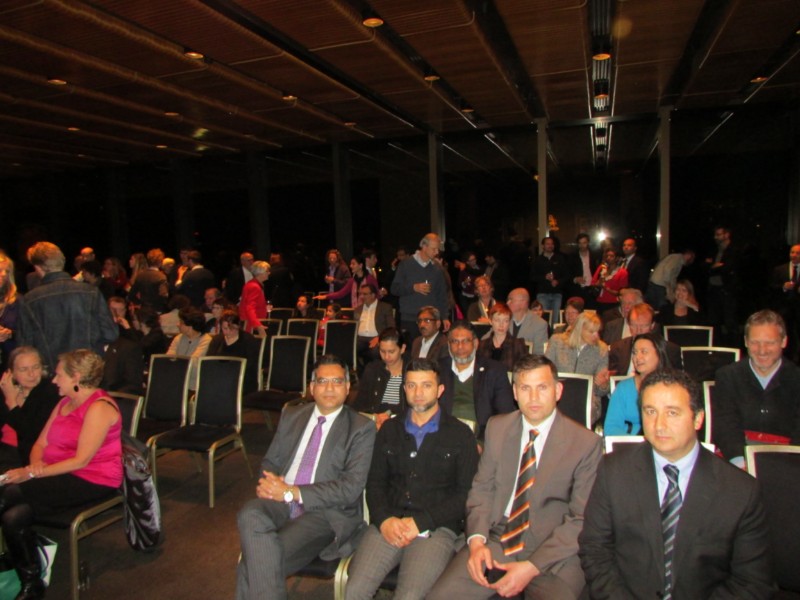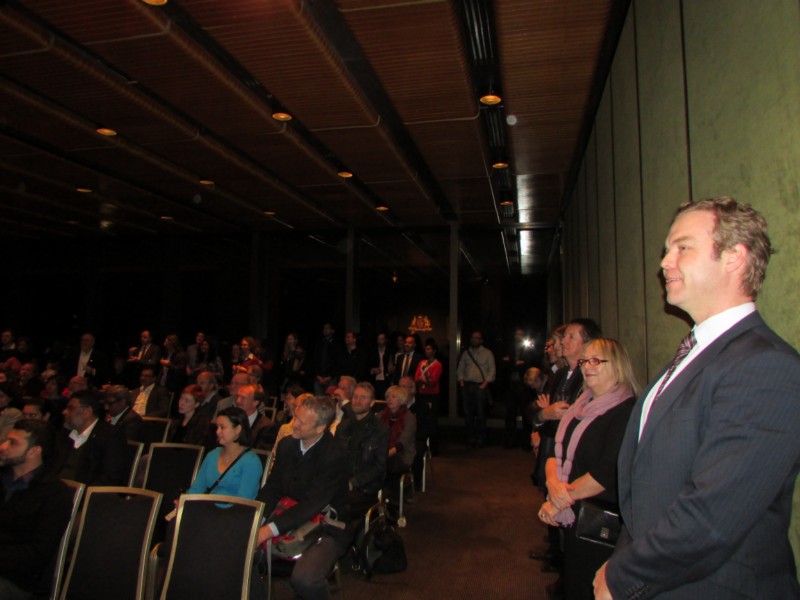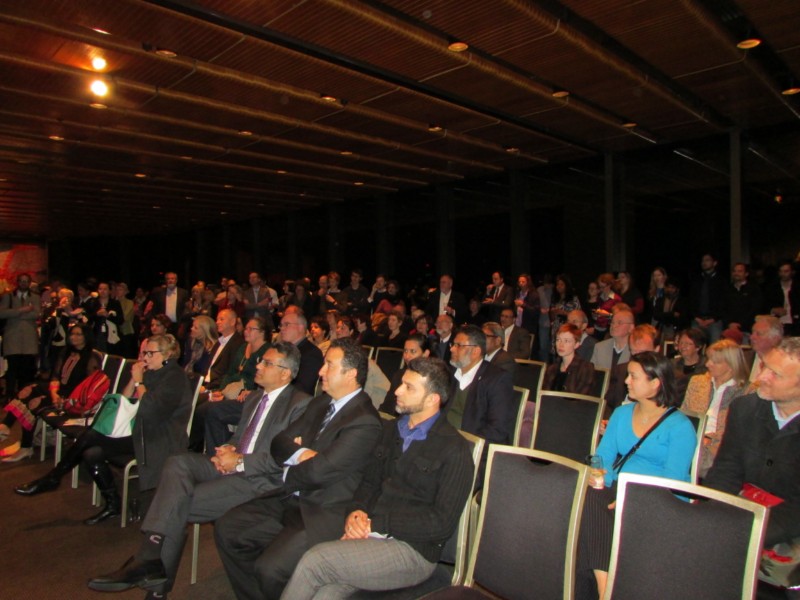
Sada-e-Watan Sydney ™
sadaewatan@gmail.com

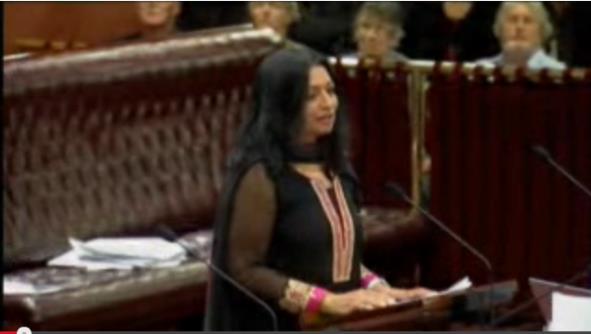
First Pakistani and First Muslim
Female Member NSW Parliament Honourable Dr. Mehreen Faruqi’s Inaugural Speech
Celebration at the Parliament House
(Coverage by: Syed Zafar
Hussain, Editor-in-Chief Sada-e-Watan Sydney)
Dr Mehreen Faruqi is a Greens MP in the NSW Upper House. She is an engineer, academic, and activist, working for social and environmental justice.
Dr Mehreen Faruqi is an environmental engineer and sustainability expert. She has worked passionately in numerous senior roles in universities, multinational and local consultancies and within local government in order to achieve the change required for social, ecological and economic sustainability. Before elected as MP, she was Associate Professor at the University of NSW. Since migrating from Pakistan, Mehreen has spent the past two decades working and raising her family in regional NSW and Sydney. She now lives in Alexandria.
Wednesday, 21 August 2013 was Dr. Mehreen Faruqi's Inaugural Speech Celebration day. Dr. Mehreen’s inaugural speech was scheduled to start at 5.45pm.After the speech; Mehreen Faruqi arranged a Celebration function in the Strangers Function Area on Level 7.
Over 150 people turned up to witness Greens NSW MLC, Dr Mehreen Faruqi deliver
her inaugural speech to the Legislative Council of the Parliament of NSW. Dr
Faruqi’s mother, Almas Khalifa, who had flown to Australia for the occasion, her
husband Omar and two children Osman and Aisha looked on proudly as Mehreen
recounted her journey from growing up in Pakistan to her arrival in Australia,
the importance of education and the invaluable role it played in providing her
with opportunities to do useful fulfilling work, her experiences as a student,
teacher and leader, and her inspirations and vision for the future. Dr Faruqi
also quoted lines from her favourite poem by Allama Iqbal and highlighted the
courageous story of young heroine Malala Yousafzai.
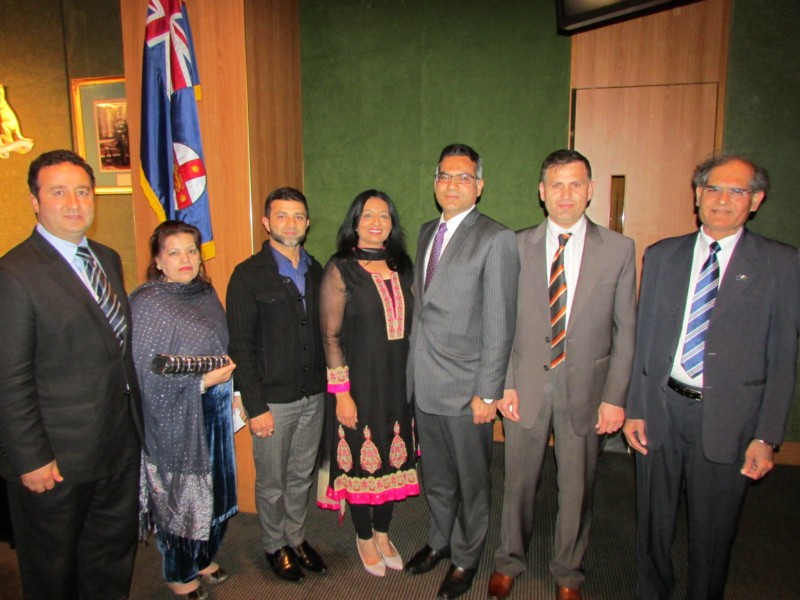
Shaoquett Moselmane, Mrs. Nafisa Zafar, Sardar Khosa, Mehreen Faruqi, CG Abdul Aziz, Mr. Shifaat and Zafar Hussain
At the close of Dr Faruqi’s speech, warm congratulations were offered by the President of the NSW Legislative Council who also acknowledged the presence of the Consul General of Pakistan, Mr Abdul Aziz, the Mission Consul, Mr Shifaat Kaleem and Mission Counsellor Mr Balakh Sher Khosa. Dr Faruqi was then joined by her honoured guests for speeches by Greens Federal Senator Lee Rhiannon, Greens NSW MLC Dr John Kaye, former Director of the UNSW Institute of Environmental Studies, Dr Ronnie Harding and long-time colleague and friend, Ms Roberta Ryan, Director of the Australian Centre of Excellence for Local Government at UTS. It was a truly momentous occasion celebrating the achievements of the first Moslem woman to be elected to a parliament in Australia. Hon.Jamie Parker - Greens MP for Balmain was MC of the function.
Dr. MEHREEN FARUQI Speech Hansard
Dr MEHREEN FARUQI [5.45
p.m.] (Inaugural Speech): I will begin by acknowledging the traditional
custodians of the land on which we are gathered, the Gadigal people of the Eora
nation, and pay my respects to their elders past and present. This land always
has been and always will be Aboriginal land. Whether we arrived with the First
Fleet or in the two centuries of immigration since, it is important to remember
that most Australians come from migrant families and that the soil on which we
stand belongs to someone else.
I believe my story is one that belongs to many Australians. I am one of the 5.5
million Australians who were born overseas. I am proud of my heritage, but I am
also deeply connected to the nation I now call home. Australia is richly
multicultural, and this diversity brings a vibrancy that is hard to match
anywhere else in the world. My inclusion in this Parliament reflects the promise
that brought my family and millions of families like ours to this country: an
inclusive, democratic, pluralist society which seeks to provide opportunity for
all who live here; a society in which our achievements may only be limited by
the scale of our determination, and the scope of our imagination.
It is a tragic moment in
our history though that a land as diverse and prosperous as ours, which owes so
much to its migrant heritage, may be tarnished by fearmongering and dog
whistling over refugees and migrants. I am proud of my party, The Greens, for
denouncing this rhetoric; our party which values inclusive multicultural
societies and democracies and having them remain that way. Before I say anything
else, I would like to take this opportunity to thank the thousands of Greens NSW
members who are here today and who took part in our democratic preselection and
appointed me to be their representative in Parliament. It is this practice of
grassroots decision-making that most inspires me about The Greens. I am
incredibly honoured and humbled by the support I have received from across
regional and metropolitan New South Wales.
This all seems though
quite far removed from the Pakistan that I grew up in, where the notion of
democracy was still so far from our grasp. Although Pakistan was formed as a
secular democratic State, for much of the 66 years since its independence it has
been dominated by martial law, oppression, and inequality. When I was 15, a
military dictator came to power in Pakistan and brought in dogmatic religious
laws that took away the rights of women and minority groups. It decimated the
democracy my grandfather helped create through massive people's movements and a
revolt against the British Empire. This was my awakening to activism and
politics; this is why I am so passionate about reversing inequalities.
When I was growing up, my dad would often recite a poem by the great philosopher and poet Allama Iqbal. Though it was written a world away, a century ago, its significance to my life—both where I grew up and where I am now—is not lost on me. I would like to share a few lines from this poem with you.
Sitaron se aage jahan aur bhi hain
Abhi ishq ke imtehan aur bhi hain
Gaye din ke tanha tha main anjuman mein
Yahaan ab mere raazdaan aur bhi hain
This poem is about pushing boundaries, about reaching beyond what we may feel or be told we are capable of. It is about looking beyond the short term and thinking instead about the challenges that lie on the horizon, about how when we join with others, we may have the hope and power to face whatever those challenges may be. Reflecting on it, I feel as though I have taken many of these themes to heart, much to the despair of my parents sometimes. I was influenced strongly by my boundary-pushing aunt, who was always speaking out for gender equality in a patriarchal society. I followed my dad into engineering and was for a time one of the few practising women engineers in Pakistan.
If I am honest with myself, my decision to study civil engineering was more an act of defiance against a male-dominated society and profession than a burning passion to become a structural engineer. I had grand ambitions of breaking down the barriers which oppressed the women in my community. I will be the first to admit that instead of tearing those walls down I caused one mere dent. But what are social movements if not thousands of individual dents, collectively bringing down old structures?
When I left Pakistan, I arrived in Australia with just my husband, my one-year-old son, and two suitcases. In a familiar migrant story, we arrived in the middle of a recession, and my wonderful husband spent our early months in Australia driving cabs to make ends meet until we could find jobs in our respective professions. I was able to continue my postgraduate studies, and then went on to work in research, local councils and consulting firms, before finding myself having come full circle as an associate professor of business and sustainability with students of my own to teach. I know that it was only through the love and support of my husband and my two beautiful children that I was able to do that. Omar, Osman, Aisha, I cannot thank you enough for the strength and sustenance you provide me.
I know that none of this would have been possible had I not received a good education. Though my father is no longer with us, my mother made the journey to be with me tonight. I would like to thank her both for my formal education and for perhaps the more valuable lessons I received watching her example as I grew up. She is the centre point of our extended family, and all who come in contact with her bear witness to her love and wisdom.
I also
know that not all girls and women from Pakistan are so lucky. For me, education
has been a way of life, but for the inspirational Pakistani heroine Malala
Yousafzai, the battle for that right almost cost her her life. At point-blank
range, extremists used terrible violence with the intention of suppressing a
girl and her "dangerous" ideas. Instead, the bullets fired to silence her caused
her voice to reverberate around the entire globe. On her sixteenth birthday, she
spoke in front of thousands at the United Nations, and in front of millions more
watching from their homes and schools across the world. "Let us pick up our
books and our pens," she said, "They are our most powerful weapons. One child,
one teacher, one book, one pen can change the world. Education is the only
solution." And she is right. Education is the tool by which we may push over
boundaries, reach beyond our capabilities, see those horizons in the distance
and then go charging towards them. Education is not just about information. It
grows our society and economy, and it creates industries that we have not even
imagined yet. It is a way out of generational poverty and towards security, out
of bigoted ignorance and towards peace. Education today creates the teachers,
artists, builders and leaders of tomorrow.
But what example will we be setting for these new leaders? After recent
revelations of past activities in the New South Wales Parliament, what we do
here has been met with derision. Our Parliament, and others like it, has become
contaminated in the minds of its citizens with corruption, cynicism and
stagnation. When the work we do is shadowed in such a way, how may we inspire
the best and brightest of this generation to join our ranks? As a parent of two
very switched-on children, and an educator of hundreds more, I know that there
is no fooling them. With their future at stake, they are the ones that demand
and deserve our best service.
We must remember why we
are here. I am here because I believe in The Greens principles of social
justice, ecological sustainability, peace and non-violence, and the power of
grassroots democracy. I am here because we must speak out for those unjustly
treated, whether they were born here or are fleeing persecution and seeking
refuge on our shores. I am here because we must act when the State has
jurisdiction to remove discrimination over who you can love, or whether you can
make choices for your own body. I am here because I know the responses to the
great challenges of this century will not be framed with money as the only
measure of success, but by how we simultaneously meet our social, environmental
and economic needs. I am here because I believe that we live in a nation where
one person can make a difference, but where we can do so much more when we work
together.
It is this view to the future that makes me so proud to be a Green, and prouder still of my Greens colleagues. When I joined The Greens, we had just three members in the New South Wales Parliament, and genuine political leaders like Bob Brown in Tasmania and Lee Rhiannon here in New South Wales inspired me to take an interest in the party. I signed up because of our strong stand on the environment, climate change, animal welfare, workers' rights, compassion for refugees, and removing discrimination from the law. While our stance on those issues remains resolute, we have since grown to six members, and are always ready to welcome the next one.
Regardless of the size of the team, The Greens have always been a force in the community for equality, justice and environmental protection. I join a terrific team of members of Parliament whose experience and knowledge has been vital to my transition to Parliament. I am particularly proud to arrive in the wake of two strong Greens women in New South Wales Parliament—Cate Faehrmann and Senator Lee Rhiannon—who preceded me in this House. I am excited to be working closely with all my Greens colleagues in New South Wales and across the country to fight for the rights of our people and our planet.
In a professional capacity, I have been very fortunate to collaborate with and be guided and supported by many of you here tonight. To my students and colleagues from the University of New South Wales, my colleagues from Mosman Council and Port Macquarie Council, and those from my consulting days, you have been critical in shaping my engineering and environmental work, which includes delivering infrastructure projects, building cycleways and stormwater recycling plants, and rehabilitating rainforests. The skills I have learnt prior to my involvement in politics are the skills I use every day to further strengthen the work of Greens members of the State Parliament, who have been standing up against education cuts, against the privatisation of public assets and for stopping coal seam gas mining.
My priorities during my time here will probably be familiar to those who know The Greens' vision for our society. They may not make me a lot of friends here but they have been shaped by my own experiences and values and my commitment to social justice. As the tenth Greens member of Parliament to serve in the New South Wales Parliament, I want to build on the strong foundations of all my predecessors by being a strong voice for public education, a strong voice on environmental protection, a strong voice on the rights of working people, and a strong voice on issues of discrimination against women and members of the lesbian, gay, bisexual, transgender, intersex and questioning [LGBTIQ] community.
I have been lucky to find a team of staff who are also passionate about these priorities and have been working tirelessly with me to make sure we use every minute of our time here for public good. Thank you for your support. My first few weeks in Parliament have been made so much easier by the dedicated parliamentary staff. It has been a real pleasure to work with all of you, and I look forward to working with you in future. Regardless of what we achieve inside these walls, it pales in comparison to what can and will be achieved by the people outside them. It is the passion, knowledge and determination of the people of New South Wales that can and will drive the great changes, as it always has been. Increasingly, the way forward will be for small, local movements to come together and become more daring and resolute in their advocacy.
This transformation will come through consensus from the bottom up rather than top-down authority. Of course, we should be proud of what has been achieved and celebrate this, but there is much more to be done, both here and globally. I believe that we can only change the world by changing the way we do things in our local communities. We do not have to wait for the whole world to agree to change before we do.
The challenges we face in the twenty-first century are complex and do not have straightforward, clear-cut solutions. They require long-term thinking, innovation and creativity and the courage to challenge dominant world views and business-as-usual thinking and doing. We need new models of leadership to forge solutions through shared and collective processes. I do not believe that political leadership is purely about those of us in this building. It is instead the process of collaboration, which relies on working with and mobilising people in the community to lead the change through inclusive processes that generate trust and consensus. It is this approach to leadership that will deliver the responses to solve the problems we face today.
It is
often said that the future is uncertain. We all have the privilege of shaping
the future for New South Wales and to lead the way, both in Parliament and in
our communities. But rather than waiting for a future that we do not want, I
want to work with you all to shape one that we do want—a future in which our
environment is healthy, our economy is green and the diverse communities of our
State are meaningfully represented and included in their Parliament. Thank you.
DISTINGUISHED VISITORS
The PRESIDENT: Before members congratulate Dr Faruqi on her very fine inaugural speech, I would like to acknowledge the presence in the President's gallery of Dr Faruqi's family, particularly, as she mentioned, her mother, who has travelled from Pakistan, and also the Consul General of Pakistan, Mr Abdul Aziz, the Consul, Mr Shifaat Kaleem, and Counsellor of the Mission, Mr Balakh Sher Khosa. I thank them for attending and I congratulate Mehreen.
To watch Dr Mehreen Faruqi’s speech please click this link:
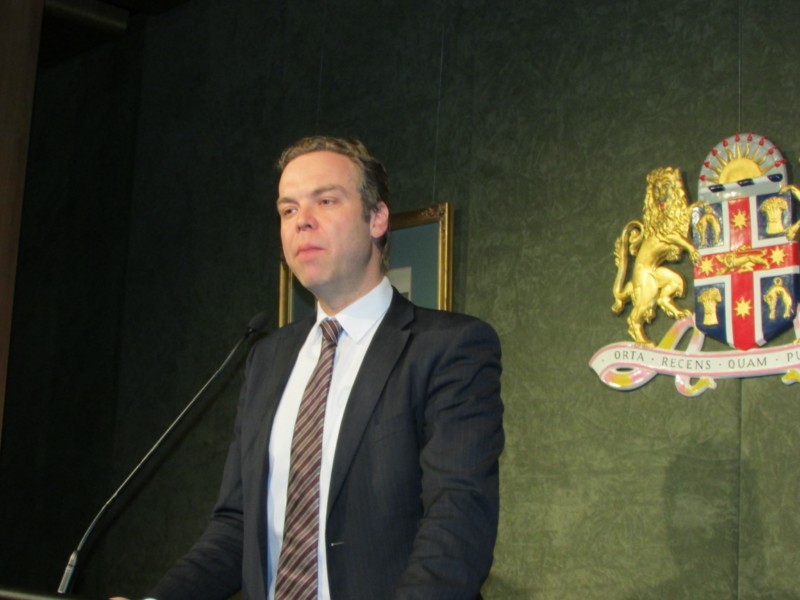
Hon. Jamie Parker - Greens MP for Balmain
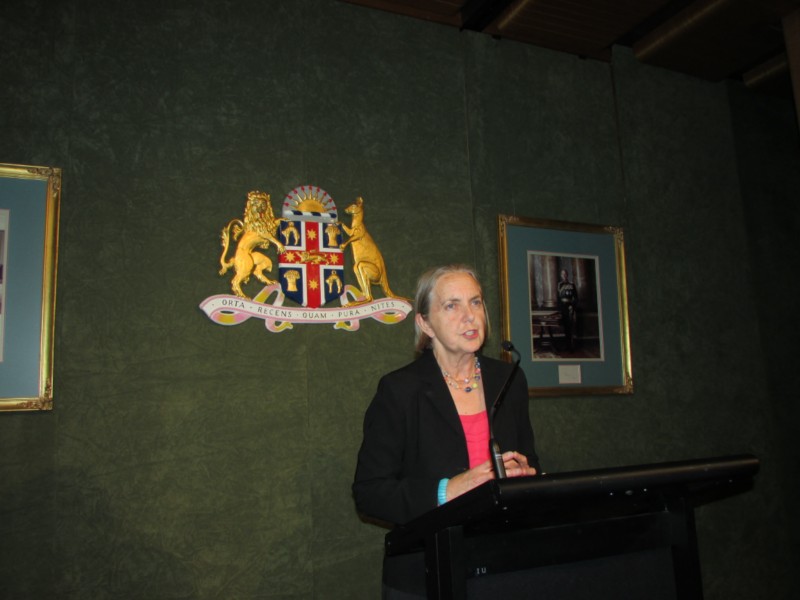
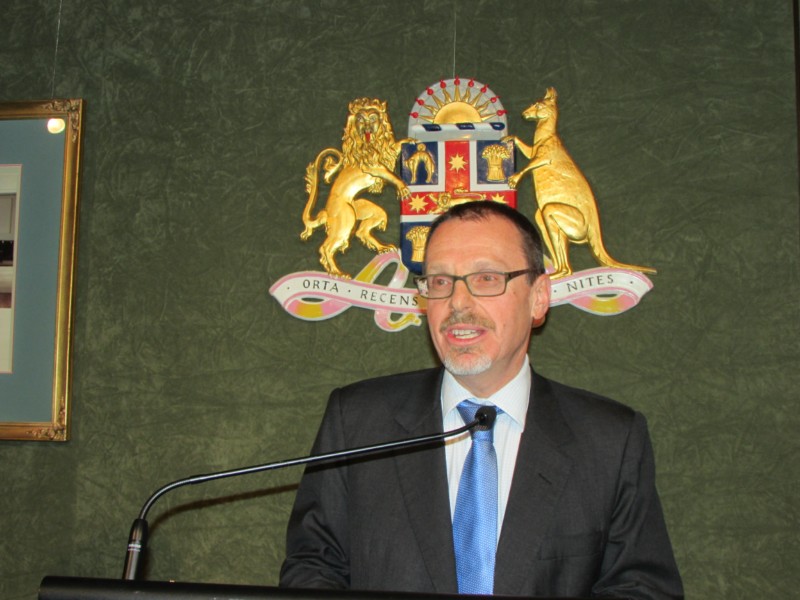
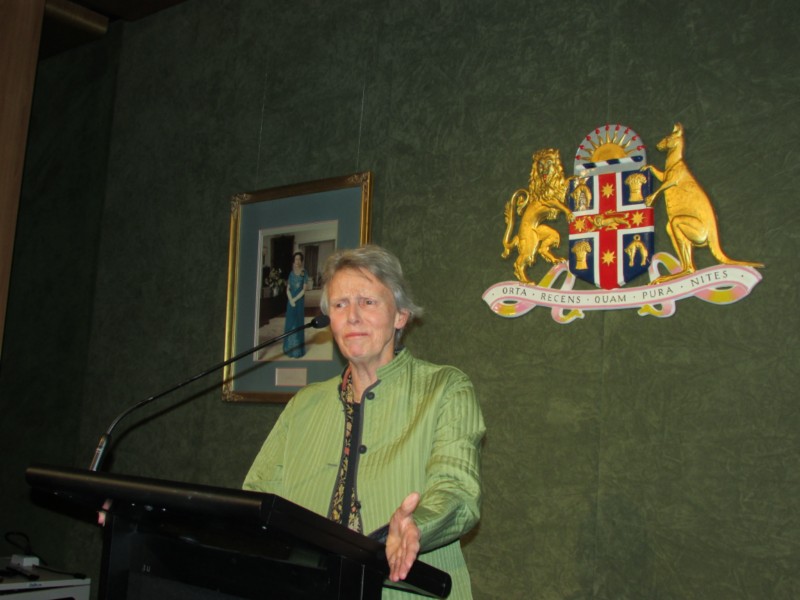
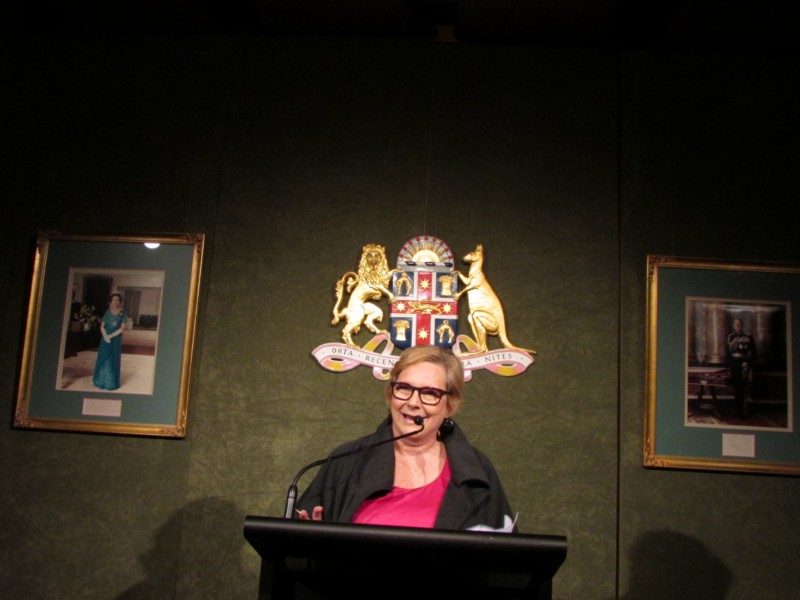
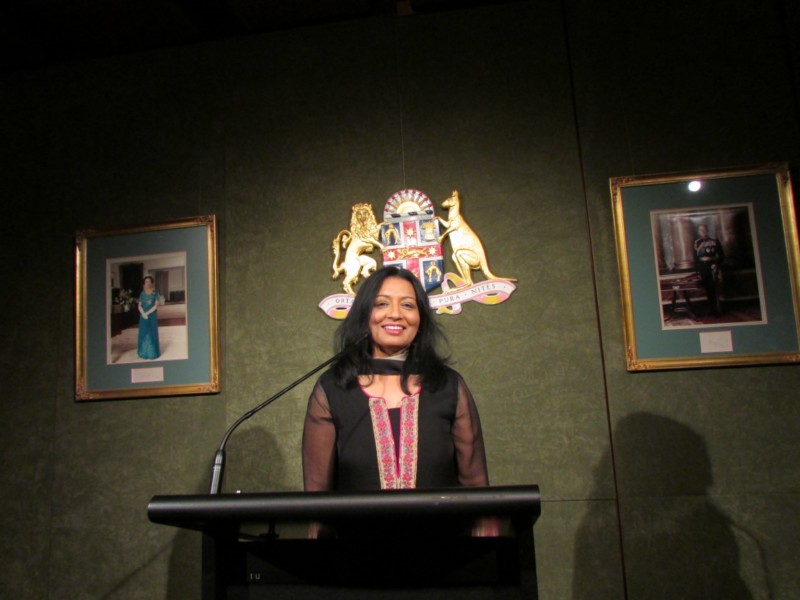
First Pakistani and First Muslim Female Member NSW Parliament Honourable Dr. Mehreen Faruqi
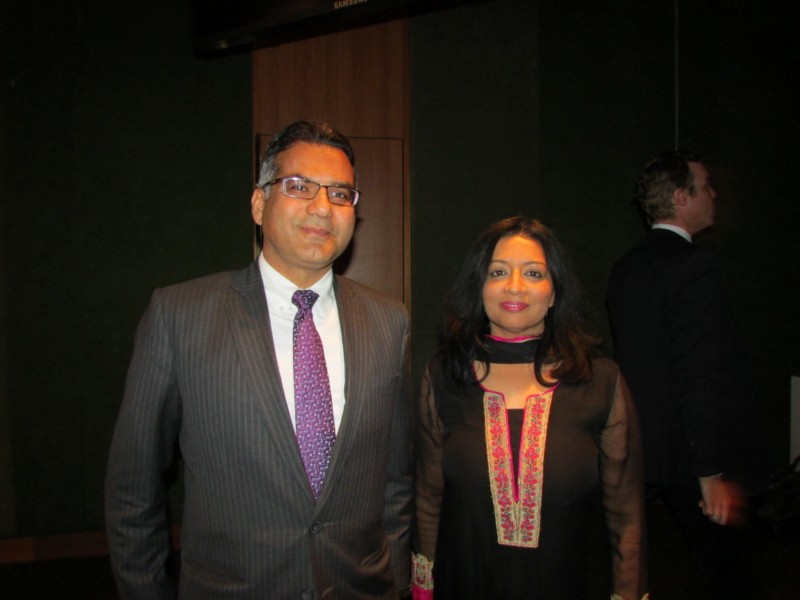
Consul General of Pakistan Mr. Abdul Aziz Uqaili and Hon.Dr, Mehreen Faruqi

Hon. Shaoquett Moselmane and Hon. Mehreen Faruqi
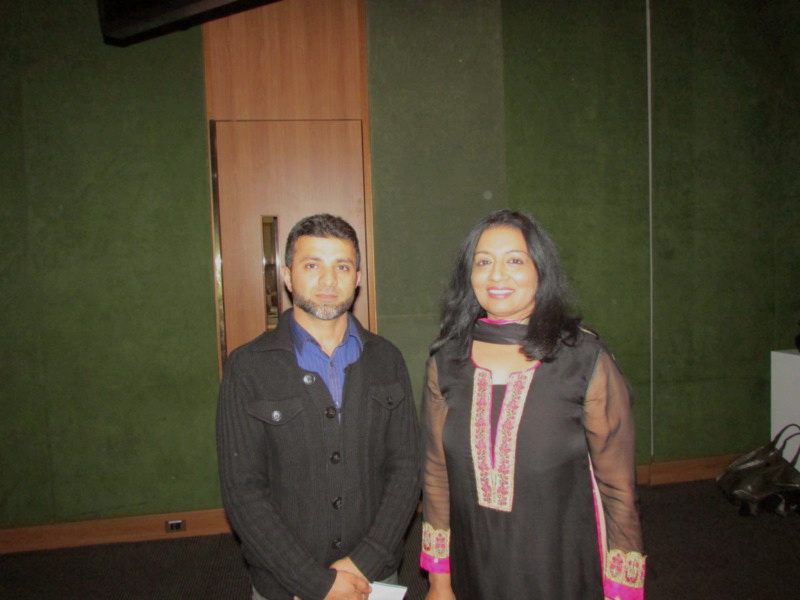
Counsellor Welfare Sardar Balakh Sher Khosa and Hon. Dr. Mehreen Faruqi
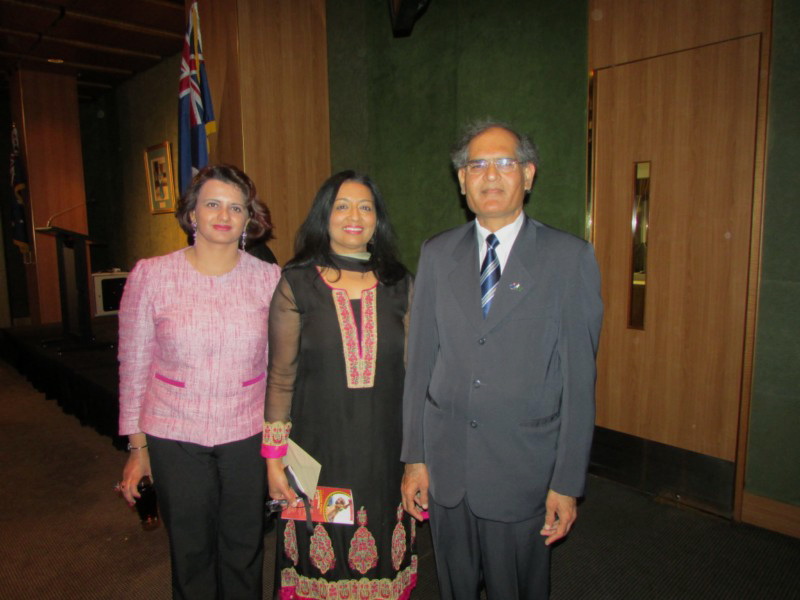
Miss Fouzia Zia, Hon. Dr. Mehreen Faruqi and Syed Zafar Hussain

Miss Fouzia Zia, Hon. Dr. Mehreen Faruqi and Mr. Iftikhar Rana
